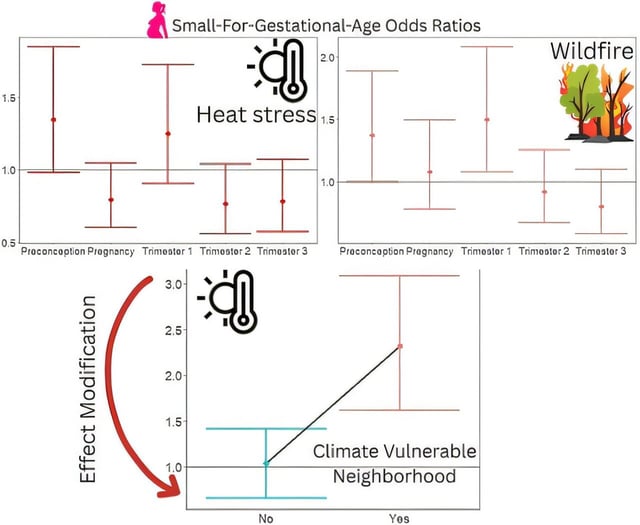Overview
- Exposure to wildfire smoke and excessive heat during the month before conception and the first trimester is associated with higher rates of small-for-gestational-age and low-birth-weight infants.
- Women living in the most climate-vulnerable neighborhoods experienced nearly double the risk of small-for-gestational-age births from preconception heat stress compared with those in less vulnerable areas.
- The study analyzed data from 713 Los Angeles women in the MADRES cohort (2016–2020) using CalFIRE fire maps and NOAA hazard modeling for smoke density alongside detailed meteorological heat metrics.
- Moderate smoke-density days in the first trimester were specifically linked to low-birth-weight outcomes, defined as infants weighing under five pounds, eight ounces.
- Researchers emphasize that personal mitigations are insufficient and call for systemic interventions—such as infrastructure upgrades, expanded healthcare access, and socioeconomic support—to protect maternal and infant health under worsening climate hazards.
